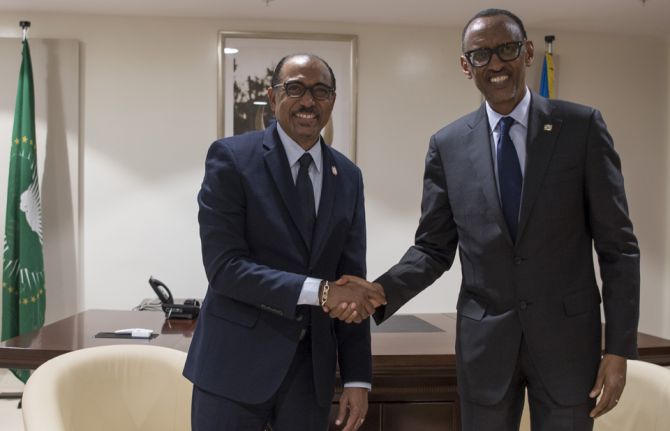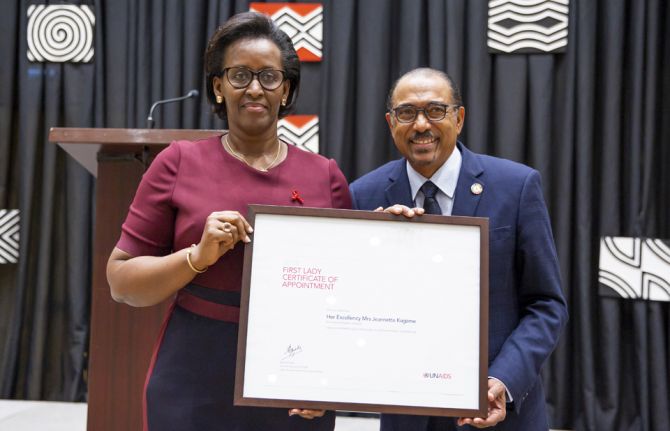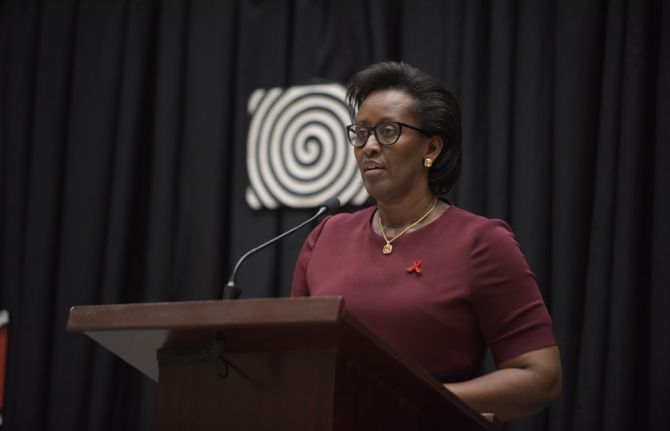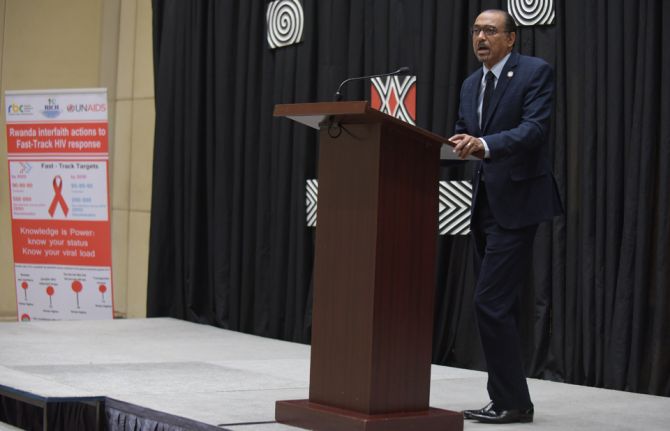




Feature Story
Rwanda’s leadership provides model for advancing global agenda towards ending AIDS
10 December 2018
10 December 2018 10 December 2018Rwanda is a critical ally in the global AIDS response. Through political commitment from its leadership, the country has convinced its peers to drive the necessary change that has helped to ensure that the AIDS response delivers bold results for Africa and beyond.
In 2011, Paul Kagame, President of Rwanda, was the first African leader to convene a meeting at the United Nations General Assembly about the future of the AIDS response and the establishment of a sustainable road map for health and development.
AIDS Watch Africa was re-established as an outcome of that meeting, providing a platform for African heads of state to meet under African Union leadership to monitor progress against the targets for HIV, tuberculosis and malaria, ensuring African ownership and leadership of the African health response.
The country has made steady progress in its response to HIV. New HIV infections in Rwanda dropped by 20% between 2010 and 2017—from 9300 to 7400. AIDS-related deaths almost halved in the same time period, from 6000 to 3100. This is due to a robust HIV treatment programme, where 83% of all people living with HIV were on HIV treatment in 2017.
In 2017, 92% of pregnant women living with HIV accessed treatment to prevent of mother-to-child transmission of HIV, which translated into 1900 new HIV infections being averted.
With this history in mind, on 7 December, Michel Sidibé, Executive Director of UNAIDS, visited Kigali, Rwanda, to demonstrate solidarity with the Government of Rwanda and amplify the leadership role it has played towards ending AIDS as a public health threat by 2030.
In a special ceremony, Mr Sidibé appointed Jeannette Kagame, the First Lady of Rwanda, as UNAIDS Special Ambassador for Adolescent Health and Well-Being. Mr Sidibé commended her for being a champion for the empowerment of women and girls in Rwanda and Africa and for her leadership in girls’ education and promoting young people’s sexual and reproductive health and rights.
“Jeannette Kagame, you have been by UNAIDS’ side since the worst days of the epidemic. It was a time of great sadness and despair. But with your help we discovered hope. It is with the utmost respect and gratitude that I say thank you for everything you have done and everything you continue to do,” said Mr Sidibé.
“We cannot sit back with the satisfaction that the worst is behind us. As the face of HIV continues to change, we must remain vigilant, in order to respond to emerging challenges in a timely manner. We must also be deliberate in strengthening our defence against HIV and equip all men, women and children with the resources to live safe and healthy lives,” said Ms Kagame
Mr Sidibé also met with Mr Kagame, the President of Rwanda and the current Chair of the African Union. They discussed health financing and the overall sustainability of the AIDS response across the African continent. In a meeting with Richard Sezibera, Minister of Foreign Affairs and Cooperation, Mr Sidibé raised the need for revitalized global health diplomacy to keep health high on the international agenda.



